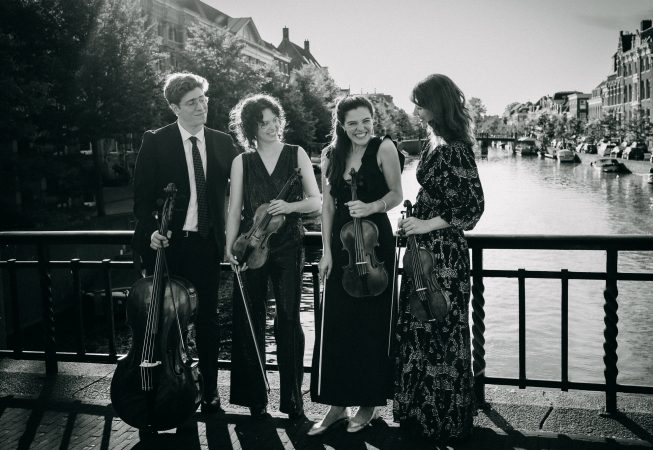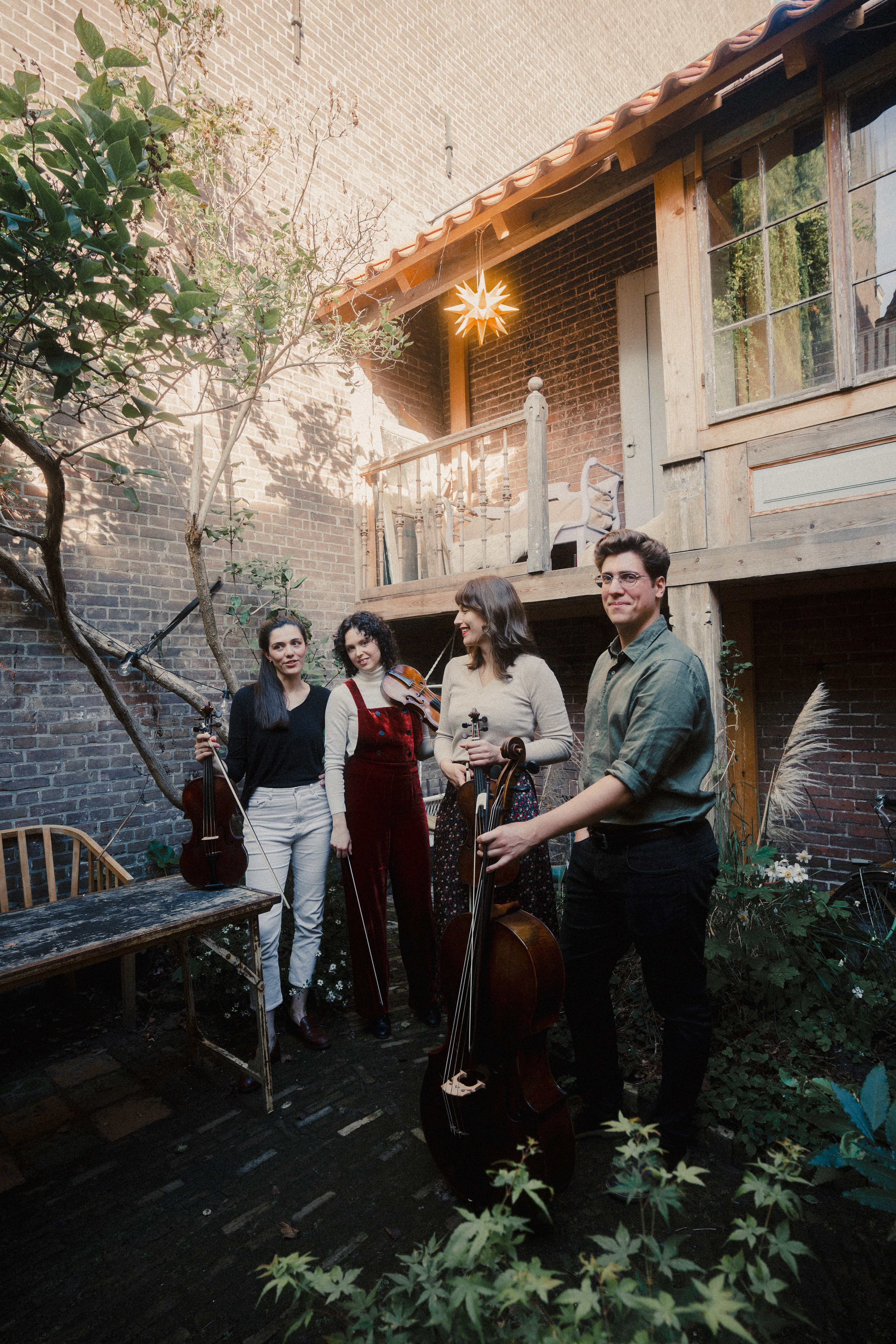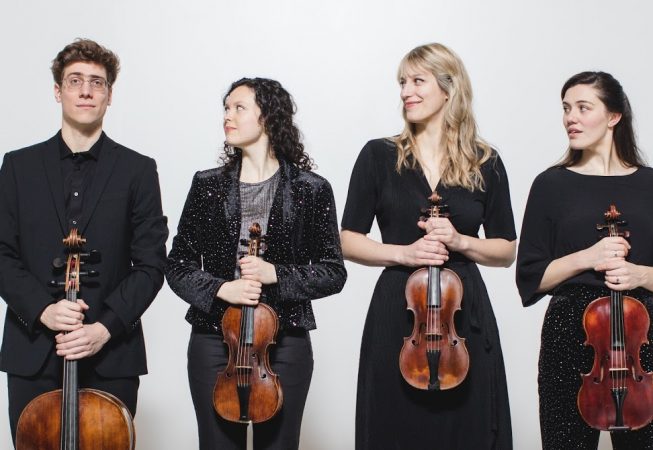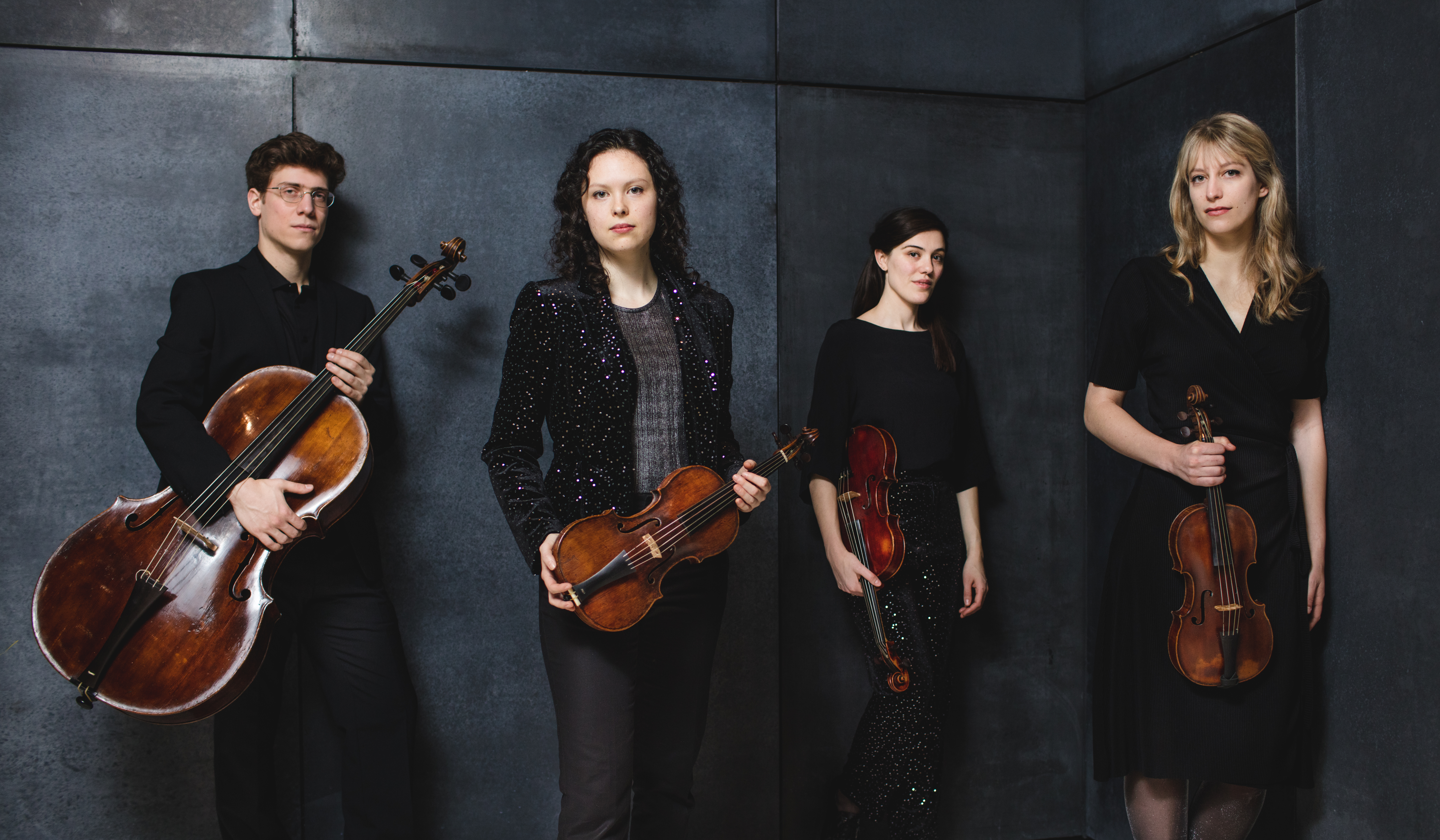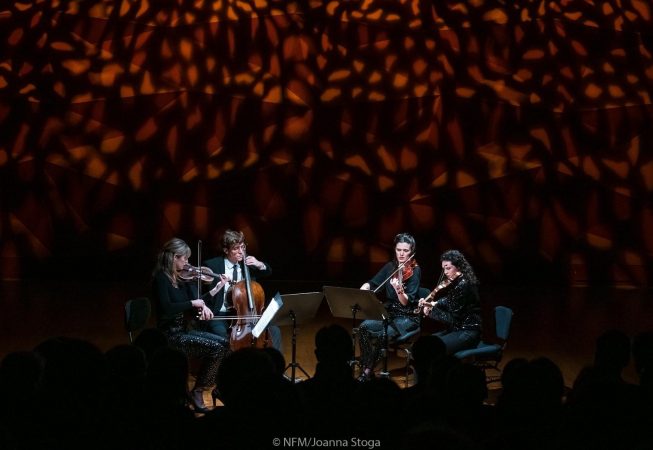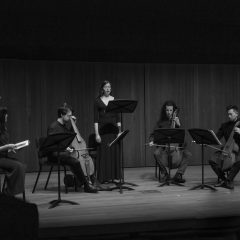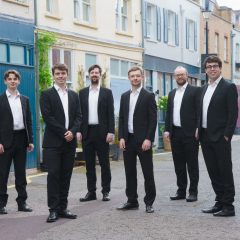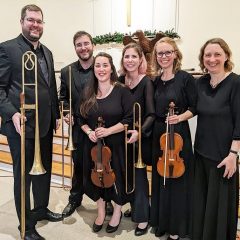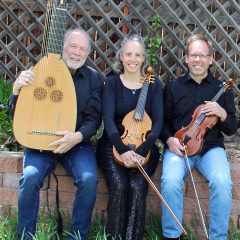Friday, November 1 | 7:30 PM
Congregational Church of Birmingham
Saturday, November 2 | 7:30 PM
Zion Lutheran Church [Please note location]
Well Met By Moonlight
In 1826, young Felix Mendelssohn looked over 200 years in the past for inspiration in William Shakespeare’s A Midsummer Night’s Dream. From this story he composed his iconic concert overture, exquisitely capturing the drama of colorful characters and the atmosphere of scampering fairy feet in hazy moonlight. The Butter Quartet also looks to the past with a new arrangement of his Overture and Scherzo, recalling the historical tradition of repurposing any music to one’s liking for the instrumentation available. The arrangement by Chloe Prendergast draws inspiration from 19th-century arrangements of orchestral works for string quartet.
The very same year that Mendelssohn wrote A Midsummer Night’s Dream op. 21, Franz Schubert composed his own hazy, dreamy String Quartet No. 15 in G Major. Though not programmatic, Schubert’s twinkle-toed Scherzo and sublime Trio feel exactly like Shakespeare’s tale of fairies, moonlit forests, mistaken identities, and lovesong. Mendelssohn’s incidental Scherzo mirrors the Schubert Scherzo’s Puck-like mischievous wit.
Though firmly in the 18th century, Franz Joseph Haydn’s String Quartet op. 50 no. 5 earned its sobriquet “The Dream” for creating a similar musical atmosphere. The first, third, and fourth movements are full of Haydn’s distinct rusticism and musical jokes, not unlike Shakespeare’s Nick Bottom. The second movement however is “The Dream,” a soaring, ethereal love song cradled by lilting, nebulous harmonies and punctuated by passages of misty triplets played by all four voices.
Our program ends with the ultimate tale of moonlit love: Mendelssohn’s String Quartet op. 13 in A minor. This passionate work, composed in 1827 only one year after A Midsummer Night’s Dream, is unified by a motif from his love song “Ist es wahr?” (op. 9 no. 1).
Pre-concert talk begins at 6:45 pm.
At the 2019 York Early Music International Young Artists Competition, they were awarded a place in the prestigious EEEMERGING+ professional development scheme for young European ensembles.
The Butter Quartet enjoys integrating their research on late 18th- and early 19th-century performance practice into powerful performances. They also bring the same spirit of discovery to newly-composed works for historically-setup instruments. The Butters value a strong connection with their audiences, and have partnered with community organizations to create grassroots concert tours in diverse spaces, supported by grants from the Prins Bernhard Cultuurfonds and the Fonds Podiumkunsten.
They have had coachings with renowned musicians and researchers such as Sigiswald Kuijken, Midori Seiler, Kati Debretzeni, Shunske Sato, Claire Holden, and Clive Brown. They attended the Evolution of the String Quartet program in 2018 at the Banff Centre for Arts and Creativity, with support from scholarships from Early Music America and the Adriana Jacoba Fonds. The Butter Quartet is the most recent recipient of the String Quartet Stipend from Het Kersjes Fonds.
https://www.butterquartet.com/videos/v/r6t5nn7b2xhzzz5l4blf6dm6h7b3mj-dk8zt
https://www.butterquartet.com/videos/v/h4hm9mse9nzzbhx3bk62dg4mkhyner-4nxft

